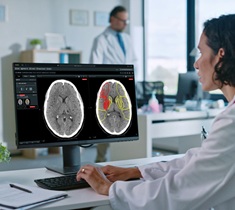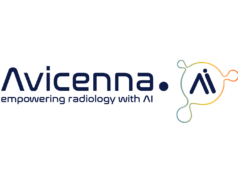
Brainomix has garnered widespread media attention this week—from mainstream UK news outlets including The Times, The Guardian, The Telegraph and The Mirror—following a renewed focus on the impact of its artificial intelligence (AI)-powered Brainomix 360 Stroke technology.
Brainomix 360 Stroke provides real-time interpretation of brain scans to help guide treatment and transfer decisions, with the goal of improving recovery rates for stroke patients.
A study previously published in Frontiers in Neurology by the Royal Berkshire Hospital (Reading, UK) demonstrated that Brainomix’s software tripled the number of stroke patients achieving functional independence, from 16% to 48%. Additional data from “the largest real-world evaluation of stroke AI imaging” showed that Brainomix 360 Stroke was associated with a more than 50% increase in mechanical thrombectomy rates, according to a recent press release from the company.
“This AI decision support technology is revolutionising how we help people who have been affected by stroke,” said National Health Service (NHS) clinical director for stroke David Hargroves (East Kent Hospitals University NHS Foundation Trust, Tonbridge, UK). “It is estimated a patient loses around two million brain cells a minute at the start of a stroke, which is why quick diagnosis and treatment is so critical. AI decision support software provides real-time interpretation of patients’ brain scans, supporting expert doctors and other NHS staff to make faster treatment decisions.”
“Brainomix is helping clinicians every day improve the level of care they can deliver to stroke patients in the UK and worldwide,” added Michalis Papadakis, chief executive officer (CEO) and co-founder at Brainomix. “We are delighted to see a focus on the unique and powerful impact that our technology is having on patient outcomes, validated by an expanding base of published, real-world evidence.”
Brainomix 360 Stroke has been deployed widely across the UK and Europe, as well as in the USA, where the technology has been validated by a number of leading stroke institutions.










